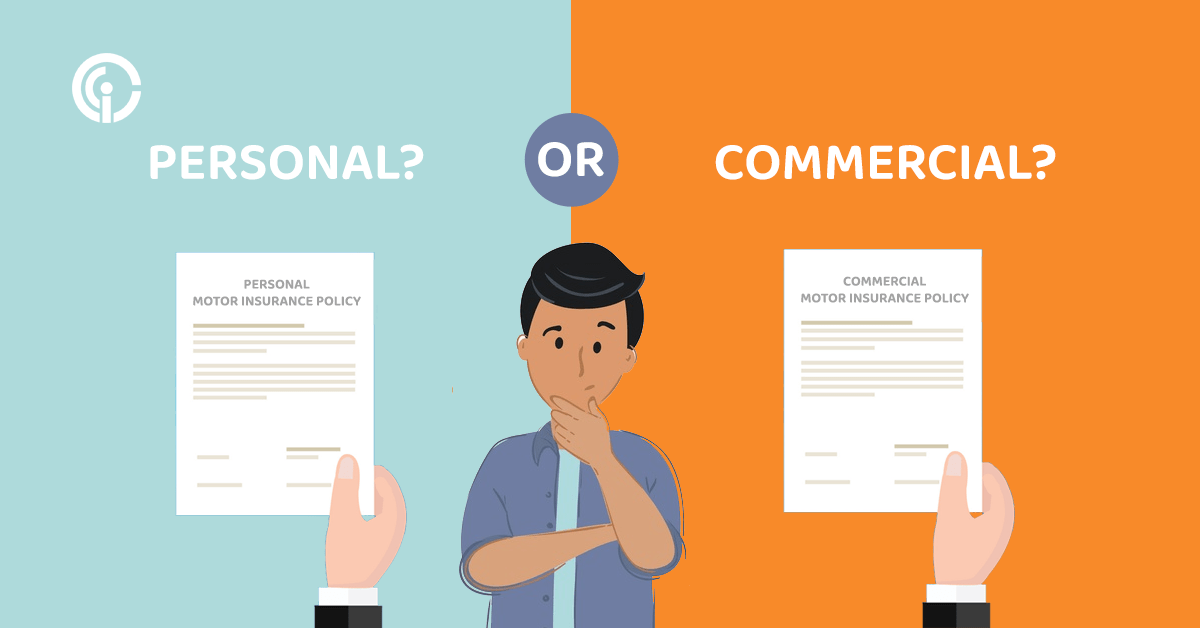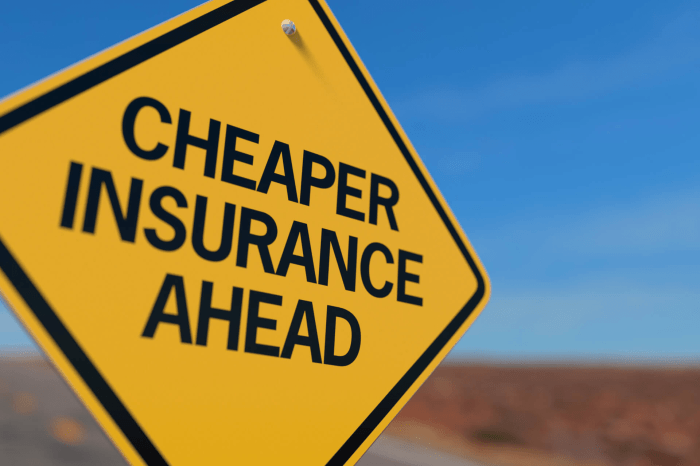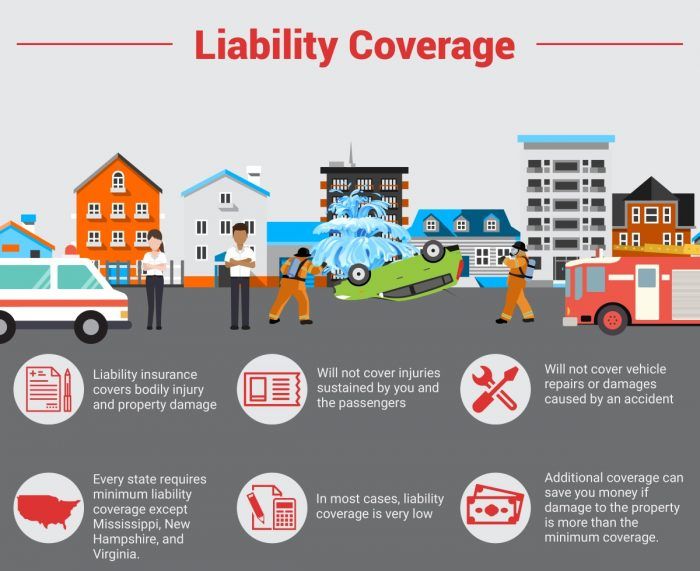Personal vs. Commercial Auto Insurance: Which One Applies to You?
Personal vs. Commercial Auto Insurance: Which One Applies to You? sets the stage for this engaging narrative, providing readers with a comprehensive look at the differences between these two types of insurance. As we delve into the world of auto insurance, we will explore key features, coverage options, and scenarios where each type applies, helping you navigate the complex landscape of insurance choices.
Personal Auto Insurance

Personal auto insurance is a type of coverage designed to protect individuals and families from financial losses in case of accidents, theft, or other unexpected events involving their personal vehicles.
Key Features and Coverage Options
- Liability coverage: Covers costs associated with injuries or property damage to others in an accident where you are at fault.
- Collision coverage: Pays for damages to your vehicle in case of a collision with another vehicle or object.
- Comprehensive coverage: Protects your vehicle from non-collision incidents like theft, vandalism, or natural disasters.
- Uninsured/underinsured motorist coverage: Covers you if you are in an accident with a driver who doesn't have insurance or enough insurance.
Examples of Situations
- If you get into a car accident and damage someone else's vehicle, your liability coverage would help cover the costs of repairs.
- If your car is stolen or vandalized, comprehensive coverage would help pay for the damages or replacement.
Importance of Personal Auto Insurance
Having personal auto insurance is crucial for individuals and families as it provides financial protection in case of unforeseen events involving their vehicles. It offers peace of mind knowing that you are covered in case of accidents, theft, or other incidents, preventing significant financial burdens.
Commercial Auto Insurance
Commercial auto insurance is designed to protect vehicles used for business purposes, providing coverage that differs from personal auto insurance policies.
Differences Between Personal and Commercial Auto Insurance
- Commercial auto insurance covers vehicles used for business purposes, such as delivery vans, company cars, or trucks.
- Commercial auto insurance typically offers higher liability limits to protect businesses from potential lawsuits.
- Premiums for commercial auto insurance are generally higher than those for personal auto insurance due to the increased risk associated with business use.
Examples of Businesses Requiring Commercial Auto Insurance
- A catering company using delivery vehicles to transport food to events.
- A construction company with work trucks used to transport equipment and materials to job sites.
- A rideshare driver using their vehicle to transport passengers for a fee.
Coverage Options in Commercial Auto Insurance Policies
- Liability coverage to protect against claims for property damage or bodily injury caused by a covered accident.
- Collision coverage to pay for damage to the insured vehicle in the event of a crash.
- Comprehensive coverage to protect against non-collision incidents like theft, vandalism, or natural disasters.
- Uninsured/underinsured motorist coverage to cover expenses if an at-fault driver does not have insurance or sufficient coverage.
Determining the Right Type for You
When deciding between personal and commercial auto insurance, there are several factors to consider to determine the right type of coverage for your needs. Understanding how your vehicle is used and the level of risk involved can help guide your decision-making process.
Factors Influencing Your Choice
- Usage of the Vehicle: Personal auto insurance is typically suitable for vehicles used for personal purposes, such as commuting to work, running errands, or family trips. On the other hand, commercial auto insurance is designed for vehicles used for business purposes, such as transporting goods, services, or passengers for a fee.
- Type of Business: If you own a business and use your vehicle for work-related tasks, you may need commercial auto insurance to ensure proper coverage in case of accidents or liabilities that occur during business operations.
- Vehicle Ownership: The ownership of the vehicle plays a role in determining the type of insurance needed. If the vehicle is registered under a business entity or used primarily for business purposes, commercial auto insurance may be necessary.
Consideration for a Hybrid Policy
- Hybrid policies, also known as blended or combined policies, offer a mix of personal and commercial coverage to accommodate various needs. This type of policy can be beneficial for individuals who use their vehicle for both personal and business purposes, providing comprehensive protection for all types of usage.
- With a hybrid policy, you can enjoy the flexibility of personal coverage for personal use and the added protection of commercial insurance for business-related activities. This can help streamline the insurance process and ensure you have the right level of coverage for all your needs.
Cost Comparison
When it comes to auto insurance, cost is a significant factor to consider. Understanding the differences in cost factors between personal and commercial auto insurance can help you make an informed decision on which type of coverage is right for you.
Typical Premium Differences
- Vehicle Type: Personal auto insurance premiums are generally lower than commercial auto insurance premiums, as personal vehicles are typically used for daily commuting and errands, while commercial vehicles may be used for business purposes.
- Usage: The frequency and distance of vehicle use also impact insurance costs. Commercial vehicles that are on the road more often and cover longer distances tend to have higher premiums compared to personal vehicles.
- Coverage Options: Commercial auto insurance offers additional coverage options tailored to business needs, such as coverage for employees driving company vehicles. These additional coverages can increase premiums compared to standard personal auto insurance policies.
Optimizing Costs
- Shop Around: Compare quotes from multiple insurance providers to find the best rates for your specific needs.
- Bundle Policies: Consider bundling your auto insurance with other policies, such as home insurance, to potentially qualify for discounts.
- Adjust Coverage: Review your coverage options regularly and adjust them based on your changing needs to ensure you have adequate protection without paying for unnecessary coverage.
Last Word

In conclusion, Personal vs. Commercial Auto Insurance: Which One Applies to You? sheds light on the nuances of selecting the right type of coverage for your needs. By understanding the factors that influence this decision and exploring cost-effective strategies, you can make an informed choice that ensures you have the protection you need on the road.
Commonly Asked Questions
What factors determine whether I need personal or commercial auto insurance?
Factors such as vehicle usage, ownership, and business involvement play a significant role in determining the type of auto insurance you need.
When should I consider a hybrid policy that includes elements of both personal and commercial coverage?
A hybrid policy may be beneficial if you use your vehicle for both personal and business purposes, as it provides a comprehensive coverage solution for varied needs.




